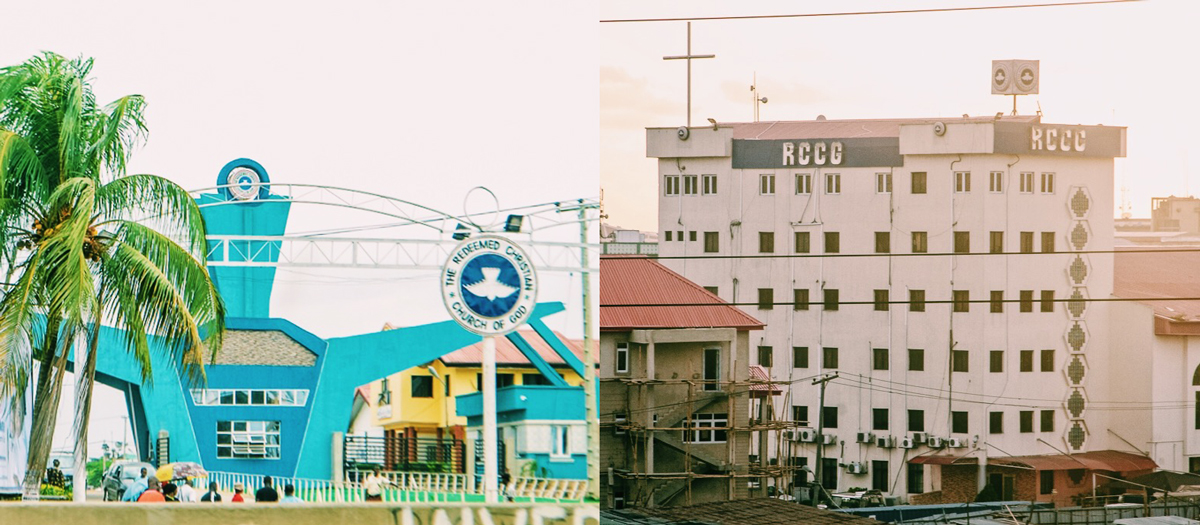
As urbanization accelerates around the world, local municipalities and city planners are struggling to keep up with the pace. Sometimes and in some areas, it’s easier to work outside the government altogether.
Such is the case for the Redeemed Christian Church of God in Lagos Nigeria, which has slowly developed a city of sorts over the past 30 years, complete with an independent power plant and privately managed security, infrastructure, and sanitation.
“In Nigeria, the line between church and city is rapidly vanishing,” writes Ruth Maclean in a profile for The Guardian. “…The Redeemed Christian Church of God’s international headquarters in Ogun state has been transformed from a mere megachurch to an entire neighbourhood, with departments anticipating its members’ every practical as well as spiritual need.”
Known as Redemption Camp, what began as a mere convention center now includes 5,000 private homes and a range of businesses and institutions, including daycares, schools, colleges, banks, healthcare facilities, restaurants, a supermarket, manufacturing shops, and a children’s fair, complete with carnival rides.
Leaders of the project maintain good relations with the local government, which coordinates closely with the church to ensure that various laws are enforced and certain standards are met. But government is not the driving force of development:
“If you wait for the government, it won’t get done,” says Olubiyi. So the camp relies on the government for very little – it builds its own roads, collects its own rubbish, and organises its own sewerage systems. And being well out of Lagos, like the other megachurches’ camps, means that it has little to do with municipal authorities. Government officials can check that the church is complying with regulations, but they are expected to report to the camp’s relevant office. Sometimes, according to the head of the power plant, the government sends the technicians running its own stations to learn from them.
There is a police station on site, which occasionally deals with a death or the disappearance of a child, but the camp’s security is mostly provided by its small army of private guards in blue uniforms. They direct traffic, deal with crowd control, and stop children who haven’t paid for the wristband from going into Emmanuel Park – home to the aforementioned ferris wheel.
The Redemption Camp experiment has a good deal of resemblance with other “private cities” that continue to emerge across the developing world, such as Gurgaon, India, a district to the southwest of Delhi that has transformed from remote village to large industrial city in a matter of decades.
Yet with its distinct integration of faith, Redemption Camp is about much more than government incompetence, growing organically and spontaneously over time the past 30 years. What began as dormitories and residences for temporary stays and occasional conferences soon evolved into a tightly knit community of faith that wanted to stay and stick together. “Families like the Oliatans find themselves wanting to live full-time with people who share their values, in a place run by people they feel they can trust,” writes Maclean.
Or, as Olubiyi puts it: “We feel we’re living in God’s presence all the time.”
As for the underlying theology and ecclesiology, plenty of questions remain. Yet the prioritization faith and local institutions is a welcome development in the wider pool of private-city experiments.
Given the mixed results of non-religious private cities like Gurgaon, we can see that improved laws, property rights, and incentives are important, but they are not enough. Redemption Camp offers a unique angle and input to such experiments, weaving together private initiative and enterprise with a spiritual motivation centered on community, service, and shared belief.
At what point Redemption Camp can or should or already has transition(ed) from “mediating institution” to governing body is an open question. Regardless, it offers as a compelling portrait of faith and work in action, unbound by scarcity or cultural constraints, and intentional and holistic in its public witness, both in word and deed.

